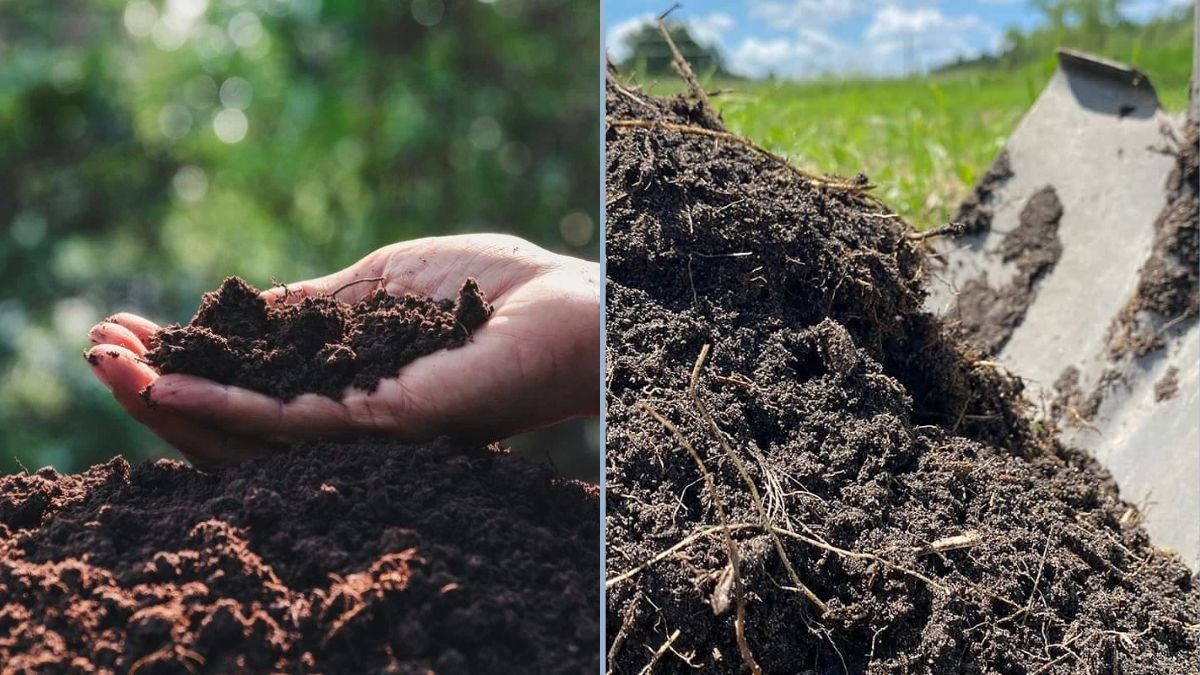Home gardening has grown in popularity as people seek healthier food, sustainable lifestyles, and a stronger connection with nature. A key factor in successful home gardening is fertile soil, which provides essential nutrients for plants to thrive. While chemical fertilizers can deliver quick results, they may harm soil health, reduce microbial diversity, and contaminate the environment over time.
Organic fertilizers, on the other hand, enhance soil fertility naturally, encourage robust plant growth, and support sustainable gardening practices. These fertilizers, derived entirely from plant, mineral, and composted materials, release nutrients slowly, improving soil structure and long-term productivity.
This article explores the top organic fertilizers for home gardening, their benefits, usage methods, and how they can transform your garden into a lush, chemical-free paradise.
Why Choose Organic Fertilizers?
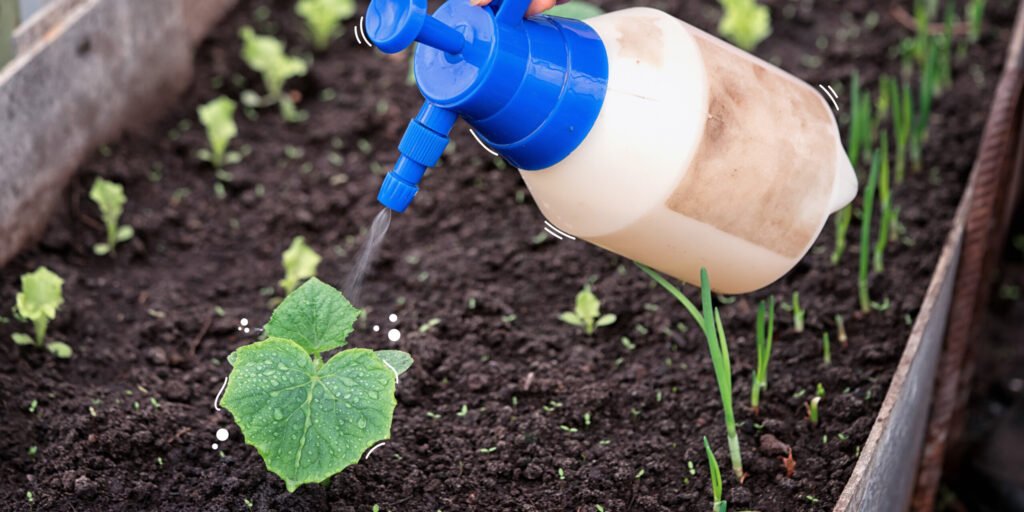
Organic fertilizers offer numerous advantages over synthetic options, particularly for home gardeners seeking sustainability and high-quality produce.
Benefits of Organic Fertilizers
- Enhances Soil Health:
Organic matter improves soil texture, aeration, and water retention. - Supports Beneficial Microorganisms:
Promotes the growth of bacteria, fungi, and earthworms that naturally nourish plants. - Reduces Environmental Impact:
Unlike chemical fertilizers, organic options prevent soil and water pollution. - Provides Slow-Release Nutrients:
Nutrients are gradually released over time, reducing the risk of plant burn. - Boosts Plant Immunity:
Stronger roots and healthier plants are more resistant to pests and diseases. - Encourages Sustainable Gardening:
Using plant-based or composted fertilizers reduces dependency on industrial products and promotes eco-friendly habits.
Top Organic Fertilizers for Home Gardening
There is a wide range of organic fertilizers suitable for small-scale gardening. The following are among the most effective, easy-to-use, and widely available for home gardeners:
1. Compost
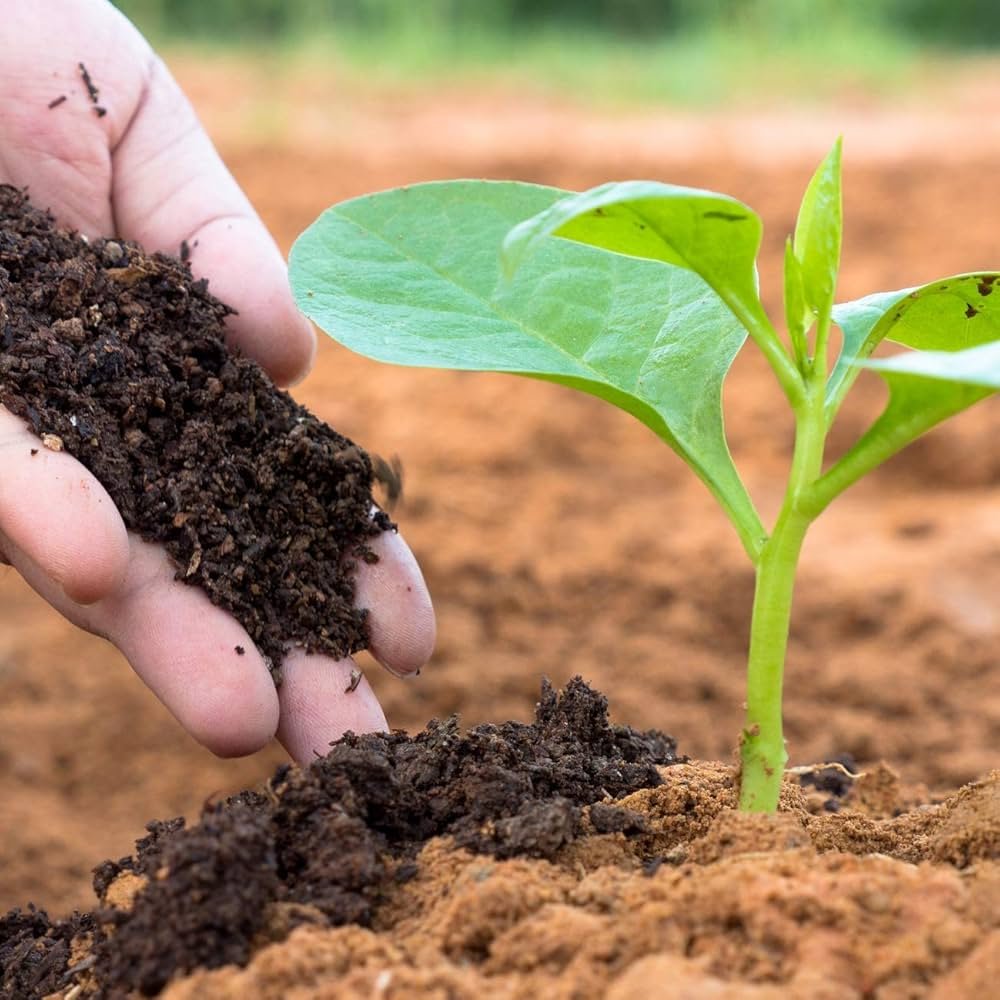
Compost is arguably the most popular and versatile organic fertilizer. It is made from decomposed vegetable scraps, fruit peels, leaves, and other plant-based materials.
Benefits:
- Improves soil structure and water retention.
- Supplies essential nutrients (nitrogen, phosphorus, potassium).
- Promotes healthy microbial activity.
How to Use:
- Mix 1 part compost with 2 parts soil for potting or raised beds.
- Apply as mulch around plants to retain moisture and suppress weeds.
- Incorporate compost into the soil before planting for long-term fertility.
Compost is ideal for leafy greens, herbs, and flowering plants, ensuring steady growth without chemical intervention.
2. Vermicompost (Worm Castings)
Vermicompost is produced by earthworms digesting organic matter, resulting in nutrient-rich castings that boost soil fertility.
Benefits:
- Highly concentrated in nutrients and beneficial microbes.
- Enhances soil aeration and water-holding capacity.
- Promotes faster germination and growth of seeds.
How to Use:
- Sprinkle vermicompost around the base of plants.
- Mix with potting soil at a ratio of 1:3 for seedlings.
- Water gently after application to help nutrients penetrate the soil.
Vermicompost is excellent for container plants, herbs, and vegetables due to its gentle, nutrient-rich nature.
3. Green Manure (Cover Crops)
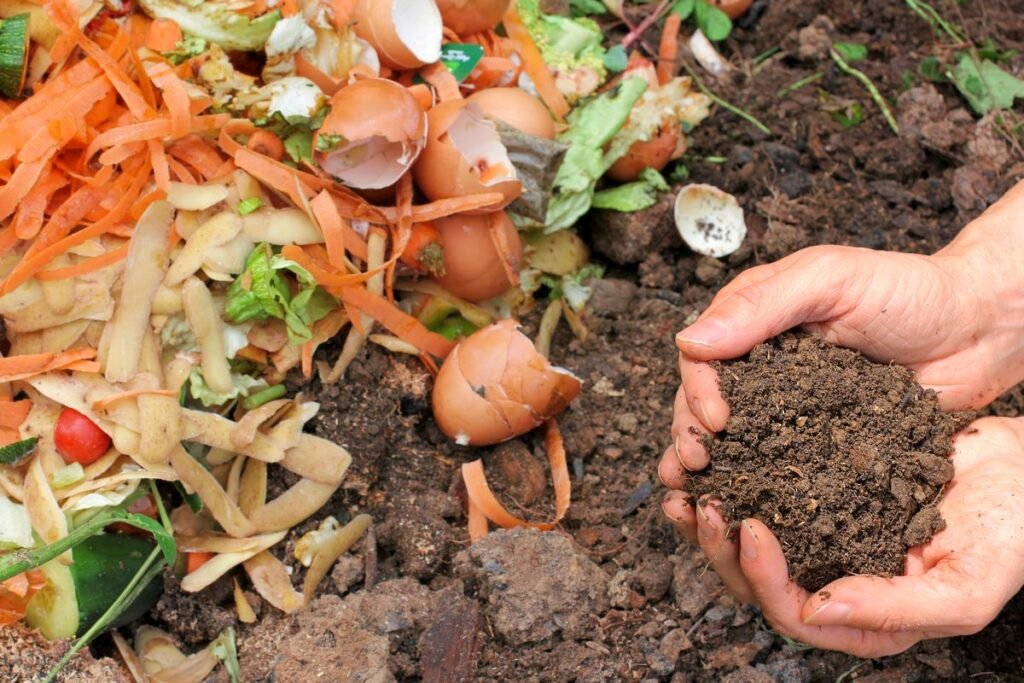
Green manure involves planting specific crops like legumes, clover, or mustard, which are later turned into the soil.
Benefits:
- Fixes nitrogen naturally in the soil.
- Adds organic matter and improves soil texture.
- Reduces erosion and controls weeds.
How to Use:
- Grow cover crops in empty garden beds.
- Cut and incorporate them into the soil 4–6 weeks before planting vegetables.
- Alternatively, allow partial decomposition and use as a surface mulch.
Green manure is particularly effective for maintaining long-term soil fertility in vegetable gardens and raised beds.
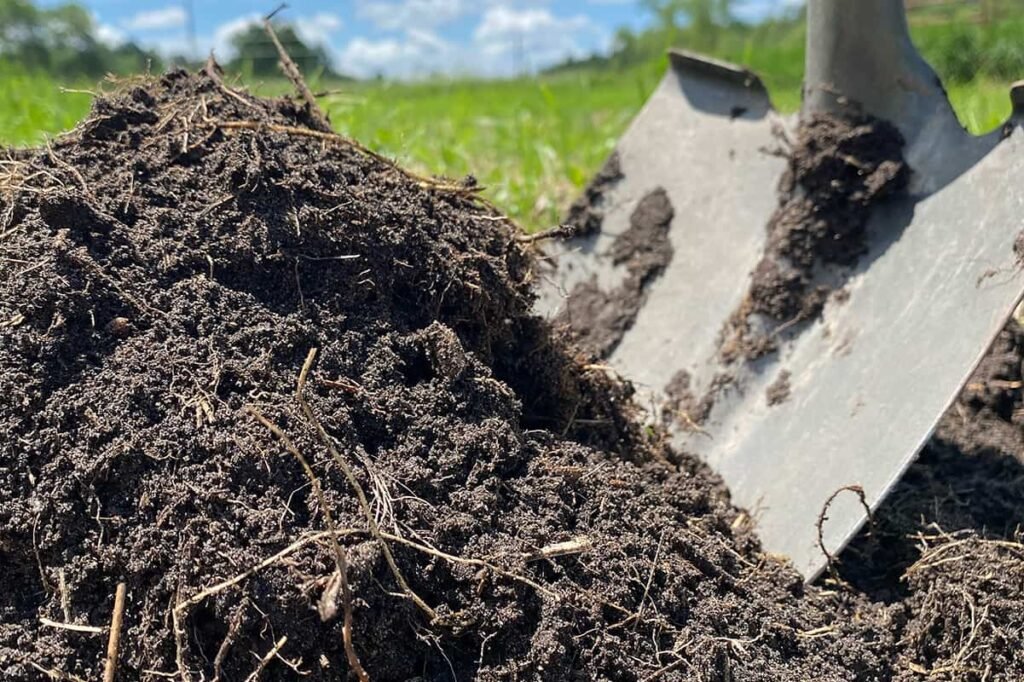
4. Neem Cake
Neem cake is a byproduct of cold-pressing neem seeds. It is widely used in organic gardening for both fertilization and natural pest control.
Benefits:
- Rich in nitrogen, phosphorus, and potassium.
- Enhances soil microbial activity.
- Repels harmful insects naturally.
How to Use:
- Mix 50–100 grams of neem cake per plant into the soil during planting.
- For larger beds, evenly distribute over the soil and lightly water.
- Can be used as a slow-release top dressing for potted plants.
Neem cake is particularly useful in home gardens where pest control without chemicals is desired.
5. Bone-Free Organic Fertilizers
While traditional organic fertilizers sometimes use animal-derived ingredients like bone meal, plant-based alternatives are excellent for vegetarian gardeners. Examples include:
- Seaweed Extract: Rich in potassium, magnesium, and trace elements; stimulates root growth.
- Alfalfa Meal: Contains nitrogen, growth hormones, and micronutrients.
- Rock Phosphate: Supplies phosphorus for flowering and fruiting plants.
Benefits:
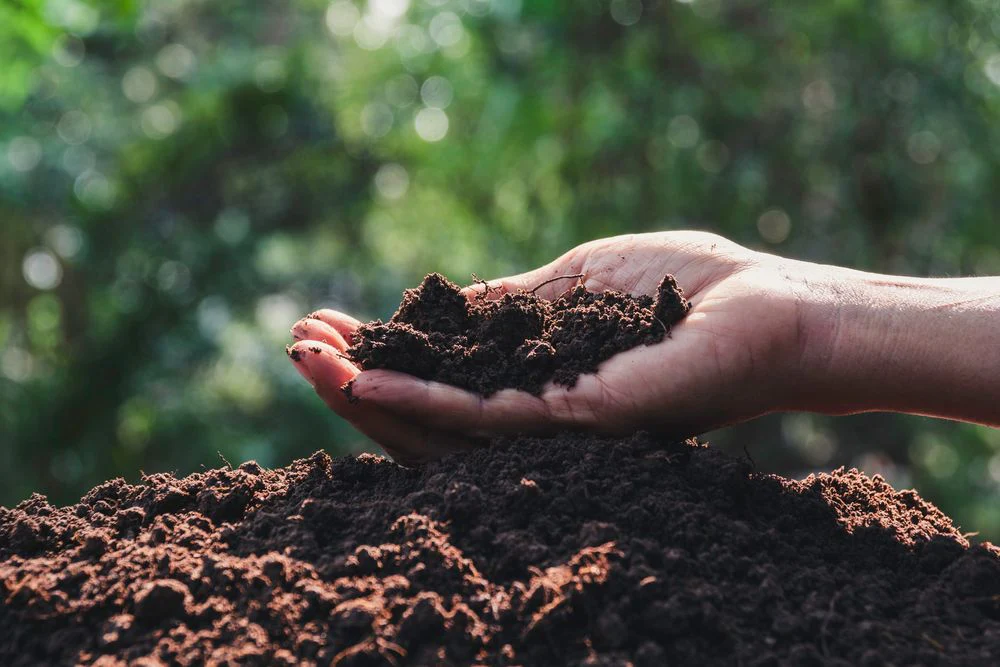
- Completely vegetarian-friendly.
- Provides targeted nutrients depending on plant requirements.
- Enhances soil fertility and plant immunity.
How to Use:
- Apply seaweed extract as a liquid foliar spray or soil drench every 2–3 weeks.
- Mix alfalfa meal or rock phosphate into soil at planting or as a top dressing.
These fertilizers support vigorous growth without compromising ethical or vegetarian principles.
6. Coffee Grounds
Used coffee grounds are a readily available and eco-friendly source of nutrients, particularly nitrogen.
Benefits:
- Improves soil acidity for acid-loving plants like tomatoes and spinach.
- Encourages beneficial microbial activity.
- Acts as a mild mulch and pest deterrent.
How to Use:
- Sprinkle used coffee grounds thinly over the soil surface.
- Mix lightly into potting soil to avoid compaction.
- Combine with compost or vermicompost for balanced nutrition.
Coffee grounds are ideal for container gardening, small herb gardens, and indoor planters.
7. Banana Peel Fertilizer
Banana peels are a rich source of potassium, phosphorus, and calcium, essential for flowering and fruiting plants.
Benefits:
- Promotes flower and fruit development.
- Improves soil fertility naturally.
- Readily available and free from chemicals.
How to Use:
- Chop peels and bury them in soil near plant roots.
- Blend with water to create a banana peel liquid fertilizer for foliar spraying.
- Add to compost piles for faster decomposition and nutrient enrichment.
Banana peel fertilizer is an easy, zero-cost solution for boosting home garden productivity.
Tips for Using Organic Fertilizers Effectively
- Balance Nutrients:
Combine different organic fertilizers for a mix of nitrogen, phosphorus, and potassium. - Apply According to Plant Needs:
Leafy vegetables require more nitrogen, while fruiting plants benefit from potassium-rich fertilizers. - Avoid Over-Fertilization:
Excess organic fertilizer can still stress plants and affect soil pH. - Incorporate with Soil:
Mix fertilizers well to ensure nutrients reach the roots. - Mulch After Fertilization:
Covering the soil with mulch retains moisture and slows nutrient loss. - Use Regularly but Gradually:
Slow, consistent feeding ensures healthy plant growth over time.
By following these tips, home gardeners can maximize the benefits of organic fertilizers while maintaining soil health.
Environmental and Long-Term Benefits
Using organic fertilizers contributes to sustainability in multiple ways:
- Reduces chemical runoff that pollutes water bodies.
- Enhances biodiversity in the soil, including microbes and earthworms.
- Recycles household and garden waste, reducing landfill load.
- Improves long-term soil fertility, unlike synthetic fertilizers that may degrade soil over time.
Organic gardening using plant-based fertilizers supports not just individual home gardens but also contributes to a healthier environment.
Conclusion
Organic fertilizers are the cornerstone of sustainable home gardening. From compost and vermicompost to neem cake, seaweed extract, and kitchen-derived fertilizers like coffee grounds and banana peels, these natural solutions provide essential nutrients while enhancing soil health.
They promote vigorous, disease-resistant plants, reduce environmental impact, and align perfectly with vegetarian, eco-friendly lifestyles. By incorporating these fertilizers into daily gardening routines, home gardeners can cultivate lush, productive gardens that yield fresh, chemical-free vegetables and herbs.
Adopting organic fertilization is more than a gardening practice — it’s a commitment to sustainability, ethical living, and nurturing the earth for future generations. Every handful of organic fertilizer applied contributes to a thriving garden and a greener planet.
